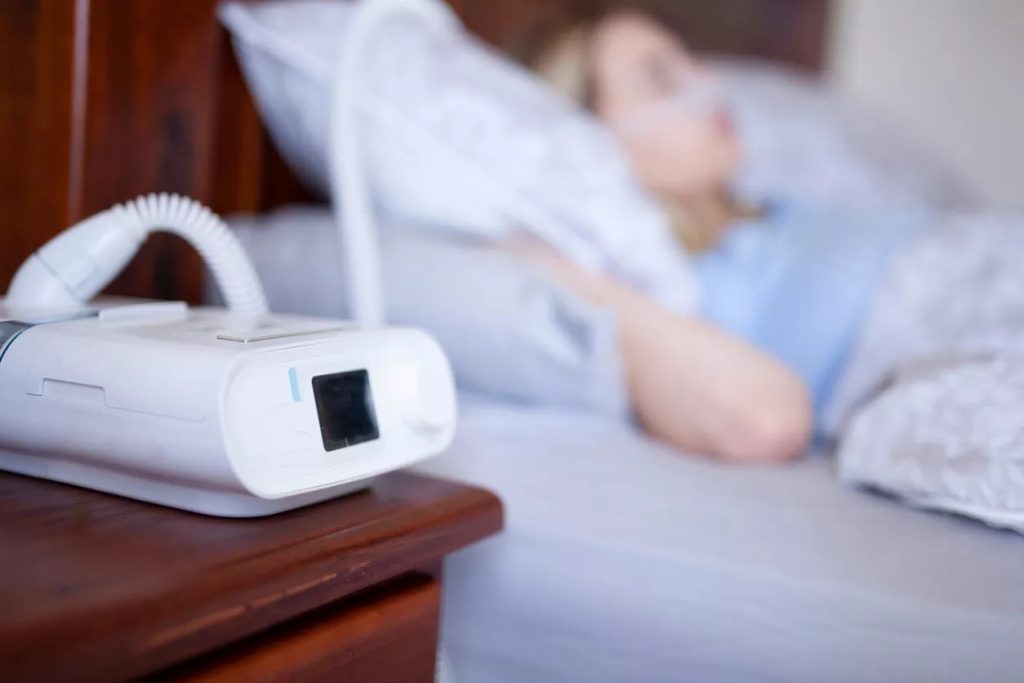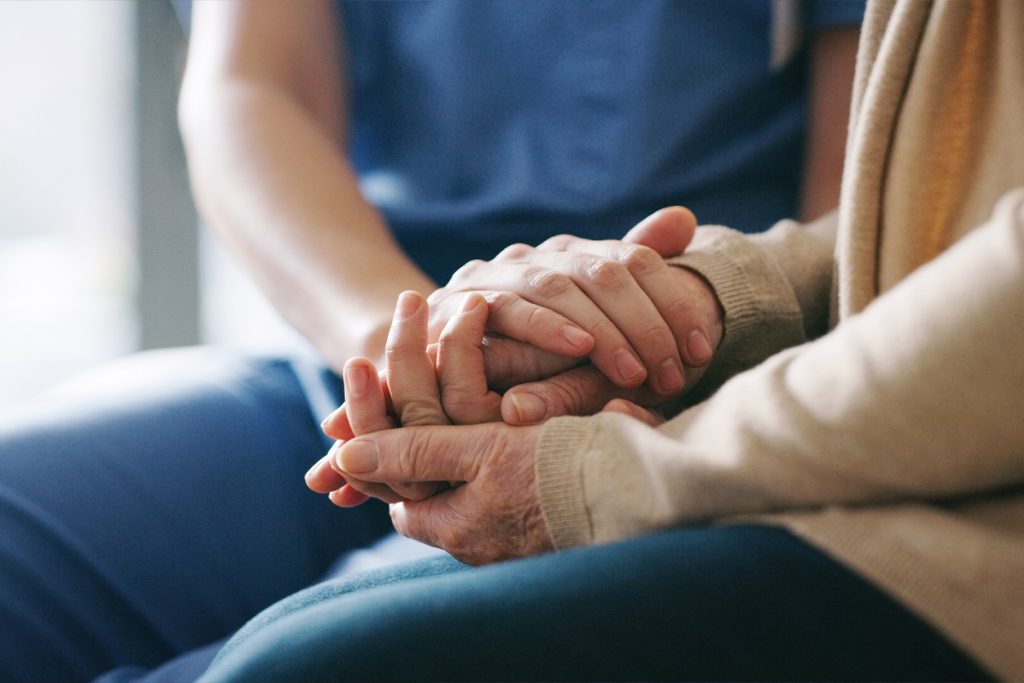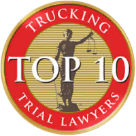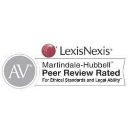Menu
Philips CPAP Recall Lawsuit Attorneys
You trust your sleep apnea breathing device to help you at night. But many patients using Philips CPAP and BiPAP devices have experienced serious medical complications. The company recalled many devices because they pose a real health danger. If you suffered significant injury after using one, you may be able to sue for compensation.
The Time to File Your Claim is LIMITED.
Free Case Evaluation
Speak with a Lawyer for Free.
*By clicking the Submit button, I consent to being contacted by Altman-Nussbaum-Shunnarah Personal Injury Attorneys at the number I provided. I also consent to receiving advertisements and telemarketing messages by text message or pre-recorded call, either of which may be dialed by an autodialer. I acknowledge that my consent is not required for purchase, that standard message and data rates apply, and that clicking Submit constitutes my electronic signature for my consent to being contacted and my agreement to the Terms and Conditions.
What Are Philips CPAP and BiPAP Devices Used For?
“A continuous positive airway pressure (CPAP) machine is the most commonly prescribed device for treating sleep apnea disorders.” (1) Basically, these devices send a steady flow of oxygen into your mouth and nose while you are sleeping. The devices keep your airways open and help you breathe.
A CPAP machine uses a compressor, or motor. This motor generates a steady stream of pressurized air. The air moves through an air filter into a flexible tube. This tube allows purified air to move into a mask you wear. The mask is sealed around your nose and/or mouth. (2)
Ideally, you experience uninterrupted sleep. Because the air from this device is pressurized, it pushes against any blockages. Your airways remain open and your lungs receive oxygen. (3)
Types of Breathing Machines
In addition to CPAP devices, other breathing machines include APAP and BiPAP devices. All are intended to help you breathe normally while you are sleeping. Here is a breakdown of these devices: (4)
CPAP
This breathing device is programmed to generate pressurized air at one constant air pressure level. If you want to change the air pressure setting, you need to reset the device.
APAP
This automatic positive airflow pressure machine monitors how you breathe throughout the night. It adjusts the air pressure automatically if you change position while you are sleeping. This device also compensates for medications you are taking that may have changed how you breathe.
BiPAP
A bi-level positive airflow pressure device comes with two pressure settings. One uses pressure for inhaling. A second uses a lower pressure for exhaling. BiPAP devices can come with a backup respiratory rate to help patients with central sleep apnea. The backup makes sure you breathe. This device works better if you cannot tolerate CPAP machines, or have higher levels of carbon dioxide in your blood.
Foam Inhalation Can Cause Serious Injury or Death
According to the U.S. Food & Drug Administration (FDA), “The polyester-based polyurethane (PE-PUR) sound abatement foam, which is used to reduce sound and vibration in these affected devices, may break down and potentially enter the device’s air pathway. If this occurs, black debris from the foam or certain chemicals released into the device’s air pathway may be inhaled or swallowed by the person using the device.” (5)
On November 12, 2021, the FDA provided an update on the recall. The FDA had inspected a Philips facility “to determine what may have caused or contributed to the foam issues and to assess adherence to the agency’s quality system regulations.” (6)
During the inspection, the FDA learned that Philips’ replacement foam, which is silicone-based, may contain volatile organic compounds (VOCs). The FDA requested an independent laboratory test the foam for any potential safety risks.
Additionally, the FDA inspection revealed that Philips was aware no later than 2015 that the polyester-based polyurethane foam (PE-PUR) foam that is the subject of the recall had a degradation issue that was dangerous to users. Internal company testing also revealed the toxicity and potential carcinogenicity of the PE-PUR foam degradation products, yet Philips chose to keep using the PE-PUR foam over safer alternatives. (7)
Philips Respironics, the manufacturer, used PE-PUR foam to lessen the sound and vibration of its breathing devices. However, if this foam comes into contact with your airways or digestive tract, dangerous side effects or medical complications may occur: (8)
- If the foam breaks down, you may inhale or swallow foam particles.
- Foam particles may release toxic chemicals, which you can breathe in or ingest.
Inhaling or swallowing PE-PUR foam particles can lead to serious injury. Possible injuries can be life-threatening. Injuries may also be permanent. Medical treatment may be necessary to prevent irreversible damage. (9)
Complaints and Dangerous Side Effects
Philips has received complaints from patients. Some patients have noted black debris, or particles, in their breathing device’s air pathway. Patients have reported headaches, irritation in their upper airway, chest pressure, a cough, and sinus infections. These side effects may be linked to inhalation of foam particles. (10)

If you have inhaled or swallowed PE-PUR foam particles, you may experience a variety of side effects and complications, including: (11)
- Headache
- Dizziness
- Irritation of the eyes, nose, respiratory tract, or skin
- Asthma
- An inflammatory response
- Hypersensitivity
- Nausea and vomiting
- Toxic and carcinogenic effects to your internal organs, including the kidneys and liver
Potential Life-Threatening Health Complications
Long-term, permanent, and life-threatening health complications – including cancer – of PE-PUR foam are possible. If you are diagnosed with any of these conditions, your illness may be linked to your use of Philips CPAP and BiPAP:
Breathing Machines May Cause Cancer
Another serious concern is the possibility of developing different types of cancer. These cancers include:
Philips Recalls Breathing Devices
On June 30, 2021, the FDA alerted the public that Philips recalled certain devices due to concerns regarding its polyester-based polyurethane sound abatement foam. (12) The FDA has recognized this as a Class I recall, “the most serious type of recall. Use of these devices may cause serious injuries or death.” (13)
“The off-gassed chemicals and foam particles may lead to serious or life-threatening injuries, difficulty breathing (respiratory distress), swelling (inflammation), a lack of oxygen (hypoxia), too much carbon dioxide (hypercarbia), or toxic reactions.” (14)
There have been 83 complaints reported as of July 22, 2021. All serial numbers of these types of devices and models have been recalled: (15) (16)
Recalled CPAP and BiPAP Devices
- Continuous ventilator, minimum ventilatory support, facility use – E30.
- Continuous ventilator, non-life supporting – DreamStation ASV; DreamStation ST, AVAPS; SystemOne ASV4; C-Series ASV; C-Series S/T and AVAPS; OmniLab Advanced+.
- Noncontinuous ventilator – SystemOne (Q-Series); DreamStation; DreamStation Go; Dorma 400; Dorma 500; REMstar SE Auto.
Recalled Ventilators
- Continuous ventilator – Trilogy 100; Trilogy 200; Garbin Plus, Aeris, LifeVent.
- Continuous ventilator, minimum ventilatory support, facility use – A-Series BiPAP Hybrid A30 (not marketed in U.S.); A-Series BiPAP V30 Auto.
- Continuous ventilator, non-life supporting – A-Series BiPAP A40; A-Series BiPAP A30.
Legal Options
If you or a loved one suffered serious medical complications or a health injury after using a recalled Philips medical device, you may be entitled to compensation. Compensation may cover medical expenses, as well as your pain and suffering, loss of earnings, and potential future income loss. Punitive damages may also be awarded.
Possible compensation you could receive includes:
- Costs due to doctor visits.
- Medication reimbursement.
- Nursing and other related care costs
- Money for days you were not able to work due to your injury.
- Money for future income you cannot make if your injury does not allow you to work.

View Our Sources
- Stanborough, R.J. (2020, August 18). What’s a CPAP Machine, and How Does It Work? Retrieved from https://www.healthline.com/health/what-is-a-cpap-machine
- Ibid.
- Ibid.
- Ibid.
- U.S. Food & Drug Administration. (2021, June 30). Certain Philips Respironics Ventilators, BiPAP, and CPAP Machines Recalled Due to Potential Health Risks: FDA Safety Communication. Retrieved from https://www.fda.gov/medical-devices/safety-communications/certain-philips-respironics-ventilators-bipap-and-cpap-machines-recalled-due-potential-health-risks
- U.S. Food & Drug Administration. (2021, November 12). Update: Certain Philips Respironics Ventilators, BiPAP, and CPAP Machines Recalled Due to Potential Health Risks: FDA Safety Communication. Retrieved from https://www.fda.gov/medical-devices/safety-communications/update-certain-philips-respironics-ventilators-bipap-and-cpap-machines-recalled-due-potential-health
- U.S. Department of Health and Human Services. Food and Drug Administration, (2021, November 9). Form FDA-483. Philips Respironics, Inc. Retrieved from https://www.fda.gov/media/154099/download
- U.S. Food & Drug Administration. (2021, June 30). Certain Philips Respironics Ventilators, BiPAP, and CPAP Machines Recalled Due to Potential Health Risks: FDA Safety Communication. Retrieved from https://www.fda.gov/medical-devices/safety-communications/certain-philips-respironics-ventilators-bipap-and-cpap-machines-recalled-due-potential-health-risks
- Ibid.
- Ibid.
- Ibid.
- Ibid.
- U.S. Food & Drug Administration. (2021, July 22). Philips Respironics Recalls Certain Ventilators and BiPAP Machines Due to Potential Health Risks from PE-PUR Sound Abatement Foam. Retrieved from https://www.fda.gov/medical-devices/medical-device-recalls/philips-respironics-recalls-certain-ventilators-and-bipap-machines-due-potential-health-risks-pe-pur
- Ibid.
- Ibid.
- U.S. Food & Drug Administration. (2021, June 30). Certain Philips Respironics Ventilators, BiPAP, and CPAP Machines Recalled Due to Potential Health Risks: FDA Safety Communication. Retrieved from https://www.fda.gov/medical-devices/safety-communications/certain-philips-respironics-ventilators-bipap-and-cpap-machines-recalled-due-potential-health-risks
Altman-Nussbaum-Shunnarah Trial Attorneys is known nationwide for providing outstanding legal advice and excellent representation. We have recovered over $750 million in lawsuits involving 18 wheeler trucking litigation, wrongful death litigation, commercial vehicle litigation, motorcycle litigation, catastrophic litigation, and mass torts involving medical devices and bad drug litigation. Our prowess in the legal arena comes from our combined years of trial and complex litigation experience.
We founded our practice on the belief that the 7th amendment and the civil jury system is the best means to provide compensation to injured parties and deter wrongdoers from injuring others in the future.















